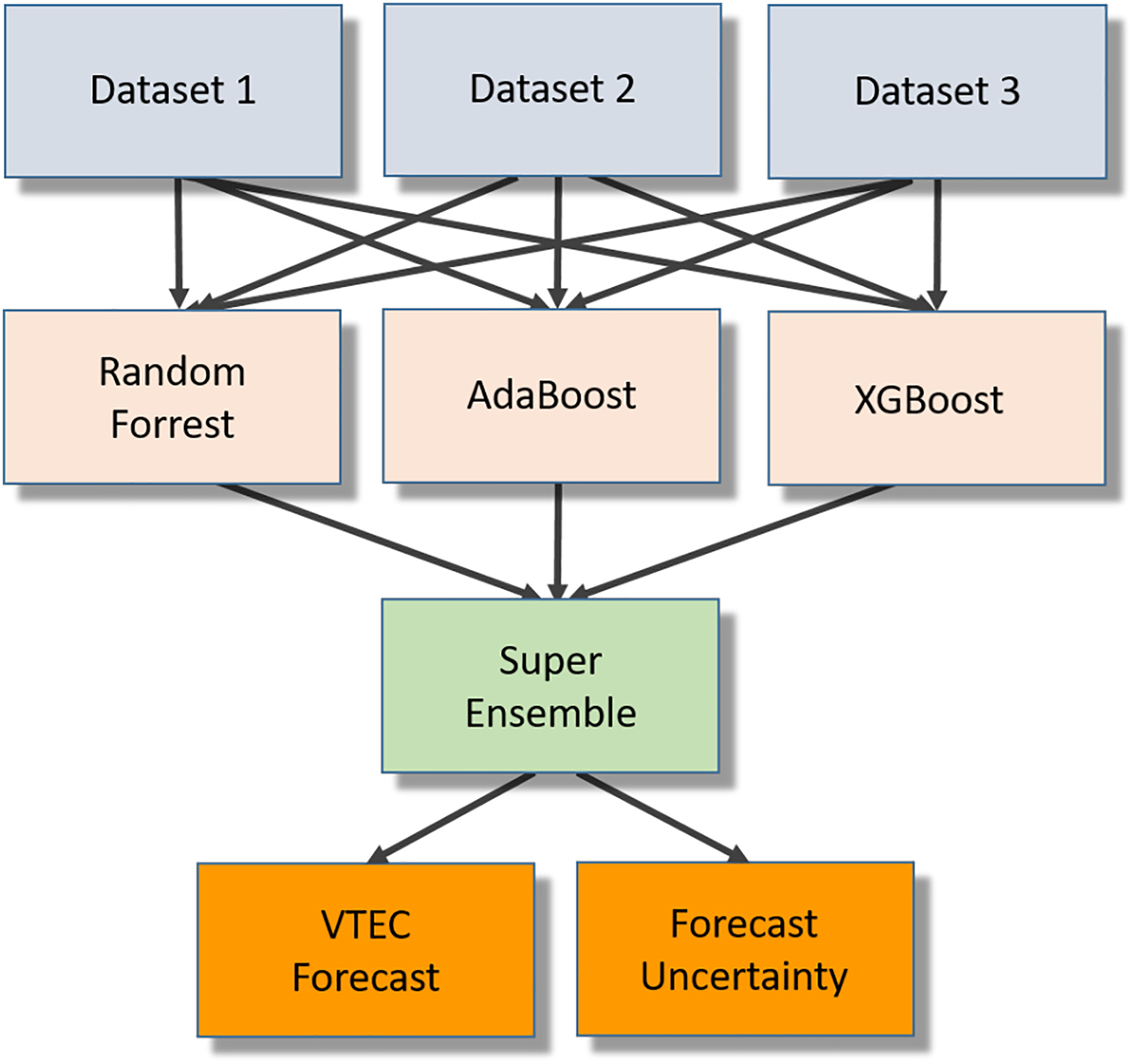New publication by Natras et al. (2023)
"Uncertainty Quantification for Machine Learning-Based Ionosphere and Space Weather Forecasting: Ensemble, Bayesian Neural Network, and Quantile Gradient Boosting" by Natras et al. (2023)
This paper delves into the application of machine learning for ionosphere predictions, particularly focusing on forecasting Vertical Total Electron Content (VTEC). While machine learning has shown promise, the paper points out a gap in understanding the confidence and reliability of these predictions. We explore different methods to quantify uncertainty in the predictions and find that certain approaches lead to overly optimistic and narrow confidence intervals. A Bayesian neural network method considering both model and data uncertainties provides a more realistic and wider range of uncertainties. However, this method is computationally intensive. Quantile Gradient Boosting on the other hand is very efficient with only slightly less realistic uncertainties. The study also identifies key factors influencing the confidence intervals, such as daytime/nighttime variations, solar irradiance, geomagnetic activity, and post-sunset low-latitude ionosphere enhancement.
Have a look at the paper: external page https://agupubs.onlinelibrary.wiley.com/doi/full/10.1029/2023SW003483
